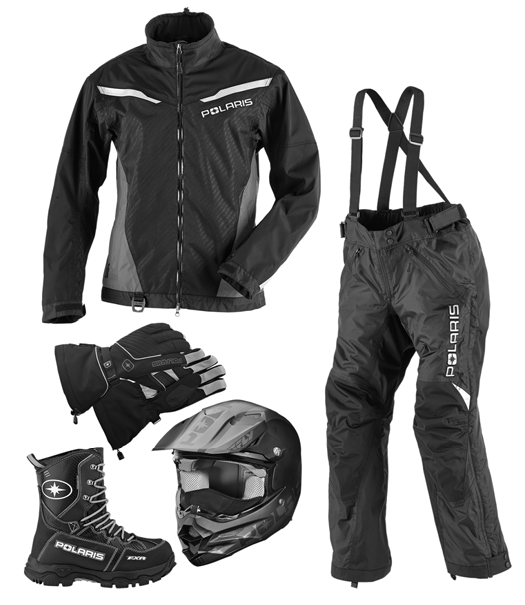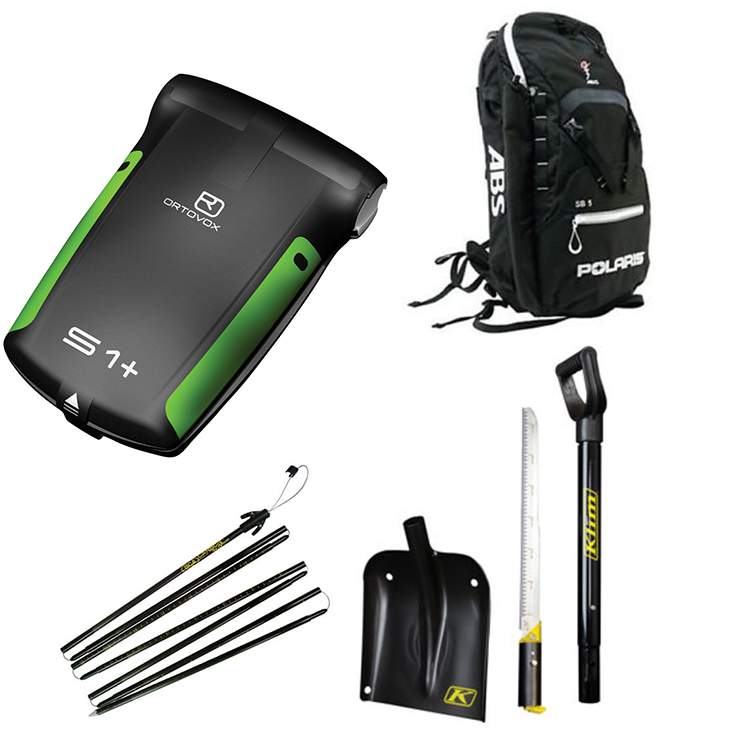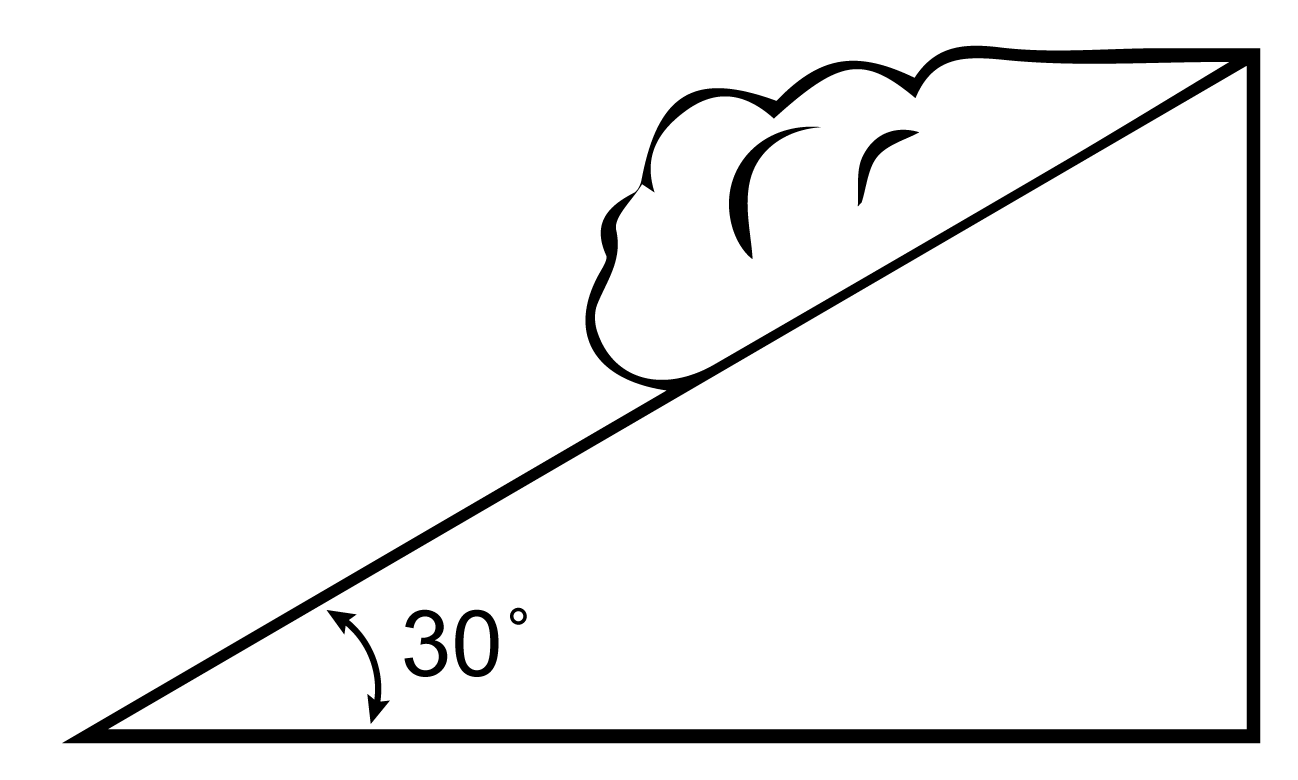
Content Source: 2019 850 Switchback Assault / SKS Owner’s Manual (9928944 R01) > Safety Chapter
| IMPORTANT |
|
The Owner's Manual for this vehicle contains warnings, instructions and other information you must read and fully understand before safely riding or performing maintenance on this vehicle.Always follow the warnings and instructions in Owner's Manual. Click the CONTENTS link above for the Table Of Contents, or download a full PDF of the Owner Manual in the Owner Support area of Polaris.com |
| Driving a snowmobile requires your full attention. DO NOT drink alcohol
or use drugs or medications before or while driving
or riding as a passenger. They
will reduce your alertness and slow your reaction time.
|
| Serious injuries may result if hands, feet, or clothing become entangled in the track. Be alert when riding, and remain properly seated to stay clear of the track. Never hold the snowmobile up or stand behind it while warming up the track. A loose track or flying debris could cause serious injury or death. We recommend having your dealer perform all track service and alignment procedures. |
| Serious injury can occur if fingers or clothing contact the moving parts of an engine. Always stop the engine before attempting adjustments. |
| Improper riding position may reduce control and could result in serious injury or death. Always ride in a position that allows for control of your vehicle. |
| Avoid wearing loose clothing or long scarves, which can become entangled in moving parts and cause serious injury. Always wear an approved helmet and eye protection. |
Be prepared, be warm and be comfortable when riding. Be aware of the weather forecast, especially the windchill, and dress accordingly. See Windchill/Temperature Charts.

| High speed driving, especially at night, could result in serious injury or death. Always reduce speed when driving at night or in inclement weather. |
Make sure the way is clear before crossing railroads and other roads and highways. The noise of your snowmobile will drown out the sound of approaching vehicles. Look ahead, behind, and to both sides before turning or crossing railroad tracks or highways. Steep embankments may also hide your view. Always leave yourself a way out.

| An avalanche can occur at any time, in any conditions and on any slope. |

Slopes steeper than 30º are more prone to avalanches, but any slope should be considered avalanche terrain, even small slopes with trees. Low-angle slopes are also avalanche terrain if they have steeper slopes above them.

| NOTE |
| The 30º slope graphic is for illustration purposes only. The risk of an avalanche is always present in mountainous terrain, regardless of slope angle. |
| Ice and snow build-up may interfere with the steering of your snowmobile, resulting in serious injury or death. Keep the underhood area free of snow and ice. |
| Never attempt an abrupt change of direction when operating on slippery surfaces. Proceed slowly and use extra caution. Driving on ice or hard-packed snow reduces steering and braking control, which may result in loss of control and serious injury or death. Slow down and use extra caution when operating on slippery surfaces. |
| NOTICE |
| Driving in too little snow will result in excessive wear and damage to the slide rail, track and/or engine. |
| Inadequate cooling and lubrication will lead to overheating of the slide rail and track, causing premature wear, damage and failure, which can result in serious injury. Reduce speeds and frequently drive into fresh snow to allow adequate cooling and polishing of the slide rail and track surfaces. Avoid operating for prolonged periods on ice, hard-packed surfaces or roads. |
| When driving on long downhill stretches, pump the brakes. Riding the brakes may cause the brake system to overheat, which may result in brake failure. Excessive or repetitive use of the brakes for high speed stops will also cause an overheated brake system. This condition may lead to a sudden loss of brakes and/or fire and may result in serious injury or death. |
| Climbing a hill or crossing the face of a slope may result in loss of balance and snowmobile rollover, causing serious injury or death. Use caution and good judgement when driving in hilly terrain. |
| Operation of the engine with the belt removed may result in injury or damage to the engine. |
| NOTICE |
| Damage to the engine may occur if the intake silencer or filter are removed. |
| Wind Speed in MPH | Actual Thermometer Reading (°F) | |||||||||||||||||
| 40 | 35 | 30 | 25 | 20 | 15 | 10 | 5 | 0 | -5 | -10 | -15 | -20 | -25 | -30 | -35 | -40 | -45 | |
| Equivalent Temperature (°F) | ||||||||||||||||||
| Calm | 40 | 35 | 30 | 25 | 20 | 15 | 10 | 5 | 0 | -5 | -10 | -15 | -20 | -25 | -30 | -35 | -40 | -45 |
| 5 | 36 | 31 | 25 | 19 | 13 | 7 | 1 | -5 | -11 | -16 | -22 | -28 | -34 | -40 | -46 | -52 | -57 | -63 |
| 10 | 34 | 27 | 21 | 15 | 9 | 3 | -4 | -10 | -16 | -22 | -28 | -35 | -41 | -47 | -53 | -59 | -66 | -72 |
| 15 | 32 | 25 | 19 | 13 | 6 | 0 | -7 | -13 | -19 | -26 | -32 | -39 | -45 | -51 | -58 | -64 | -71 | -77 |
| 20 | 30 | 24 | 17 | 11 | 4 | -2 | -9 | -15 | -22 | -29 | -35 | -42 | -48 | -55 | -61 | -68 | -74 | -81 |
| 25 | 29 | 23 | 16 | 9 | 3 | -4 | -11 | -17 | -24 | -31 | -37 | -44 | -51 | -58 | -64 | -71 | -78 | -84 |
| 30 | 28 | 22 | 15 | 8 | 1 | -5 | -12 | -19 | -26 | -33 | -39 | -46 | -53 | -60 | -67 | -73 | -80 | -87 |
| 35 | 28 | 21 | 14 | 7 | 0 | -7 | -14 | -21 | -27 | -34 | -41 | -48 | -55 | -62 | -69 | -76 | -82 | -89 |
| 40 | 27 | 20 | 13 | 6 | -1 | -8 | -15 | -22 | -29 | -36 | -43 | -50 | -57 | -64 | -71 | -78 | -84 | -91 |
| 45 | 26 | 19 | 12 | 5 | -2 | -9 | -16 | -23 | -30 | -37 | -44 | -51 | -58 | -65 | -72 | -79 | -86 | -93 |
| 50 | 26 | 19 | 12 | 4 | -3 | -10 | -17 | -24 | -31 | -38 | -45 | -52 | -60 | -67 | -74 | -81 | -88 | -95 |
| 55 | 25 | 18 | 11 | 4 | -3 | -11 | -18 | -25 | -32 | -39 | -46 | -54 | -61 | -68 | -75 | -82 | -89 | -97 |
| 60 | 25 | 17 | 10 | 3 | -4 | -11 | -19 | -26 | -33 | -40 | -48 | -55 | -62 | -69 | -76 | -84 | -91 | -98 |
| Frostbite in >> | 30 min. | 10 min. | 5 min. | |||||||||||||||
| Wind Speed in Km/h | Actual Thermometer Reading (°C) | |||||||||||||||||
| 5 | 2 | -1 | -4 | -7 | -10 | -13 | -16 | -19 | -22 | -25 | -28 | -31 | -34 | -37 | -40 | -43 | -46 | |
| Equivalent Temperature (°C) | ||||||||||||||||||
| Calm | 5 | 2 | -1 | -4 | -7 | -10 | -13 | -16 | -19 | -22 | -25 | -28 | -31 | -34 | -37 | -40 | -43 | -46 |
| 8 | 3 | 0 | -4 | -7 | -11 | -14 | -18 | -22 | -25 | -29 | -32 | -36 | -39 | -43 | -46 | -50 | -53 | -57 |
| 16 | 2 | -2 | -6 | -10 | -13 | -17 | -21 | -24 | -28 | -32 | -36 | -39 | -43 | -47 | -50 | -54 | -58 | -62 |
| 24 | 1 | -3 | -7 | -11 | -15 | -19 | -22 | -26 | -30 | -34 | -38 | -42 | -45 | -49 | -53 | -57 | -61 | -65 |
| 32 | 0 | -4 | -8 | -12 | -16 | -20 | -24 | -28 | -32 | -36 | -39 | -43 | -47 | -51 | -55 | -59 | -63 | -67 |
| 40 | -1 | -5 | -9 | -13 | -17 | -21 | -25 | -29 | -33 | -37 | -41 | -45 | -49 | -53 | -57 | -61 | -65 | -69 |
| 48 | -1 | -5 | -9 | -13 | -18 | -22 | -26 | -30 | -34 | -38 | -42 | -46 | -50 | -54 | -58 | -62 | -66 | -70 |
| 56 | -2 | -6 | -10 | -14 | -18 | -22 | -26 | -31 | -35 | -39 | -43 | -47 | -51 | -55 | -59 | -64 | -68 | -72 |
| 64 | -2 | -6 | -10 | -15 | -19 | -23 | -27 | -31 | -35 | -40 | -44 | -48 | -52 | -56 | -61 | -65 | -69 | -73 |
| 72 | -2 | -7 | -11 | -15 | -19 | -23 | -28 | -32 | -36 | -40 | -45 | -49 | -53 | -57 | -61 | -66 | -70 | -74 |
| 80 | -3 | -7 | -11 | -15 | -20 | -24 | -28 | -33 | -37 | -41 | -45 | -50 | -54 | -58 | -62 | -67 | -71 | -75 |
| 88 | -3 | -7 | -12 | -16 | -20 | -24 | -29 | -33 | -37 | -42 | -46 | -50 | -55 | -59 | -63 | -67 | -72 | -76 |
| 96 | -3 | -8 | -12 | -16 | -21 | -25 | -29 | -34 | -38 | -42 | -47 | -51 | -55 | -60 | -64 | -68 | -73 | -77 |
| Frostbite in >> | 30 min. | 10 min. | 5 min. | |||||||||||||||
© Copyright Polaris Industries Inc. All rights reserved.